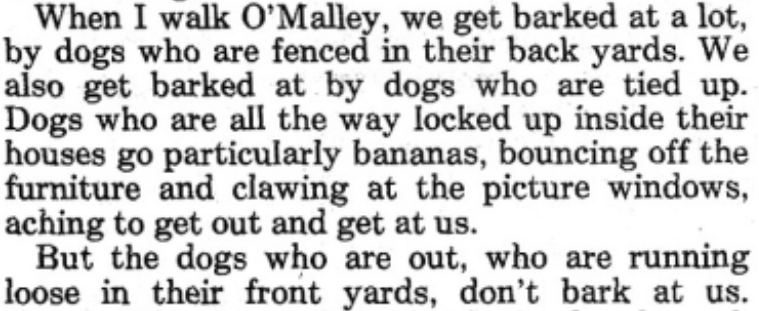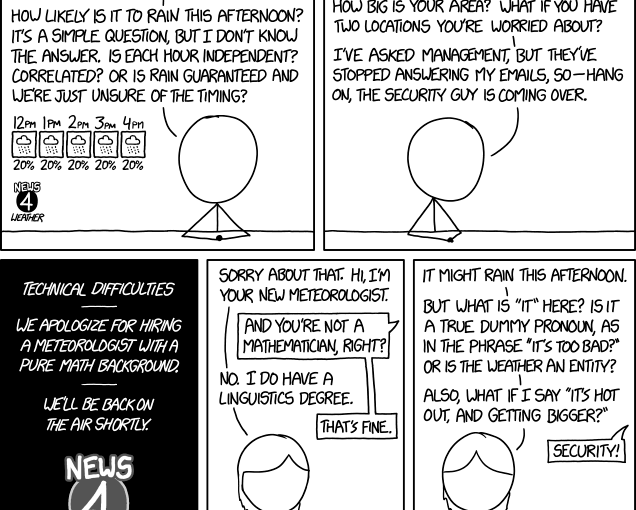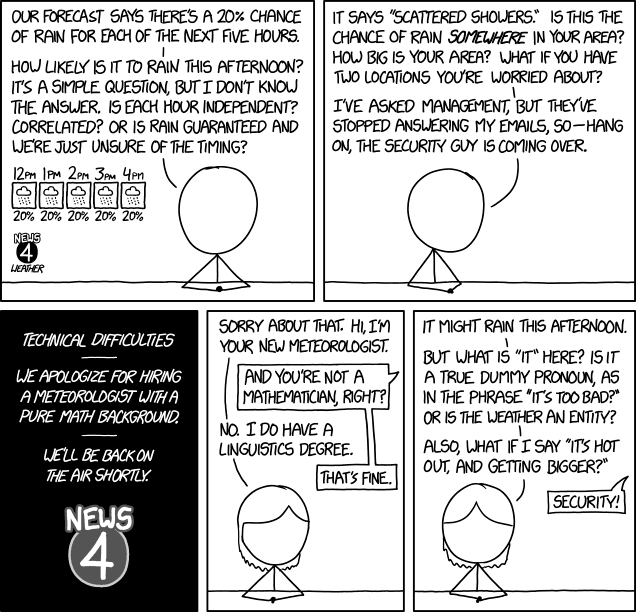Regular readers (all three of you) know that I mention “whom” a lot. —Because a lot of people get it wrong, harrumpf.
Today I offer a vote against “whom”!
Review: Use “whom” when you have an object. Think of the stuffy
To whom it may concern
That’s correct. “Whom” is the object of the preposition.
And you use “who” when you have a subject. I remember my mom saying
WHO DID THIS???
I won’t go into details about the event, but her grammar was correct. “Who” is the subject.
Now for something tricky. First, the rule:
When you parse (analyse) a sentence, go from the inside out.
Here’s the tricky sentence, from Bloomberg:
No one said no to JPMorgan, or to whomever at Palantir volunteered to help Cambridge Analytica—or to another organization keenly interested in state-of-the-art data science, the Los Angeles Police Department.
(Whom, whomever, same thing.) “Whomever” comes after “to,” so it’s an object, right? No!
The rule, remember, is to work from the inside out, and “whomever” is actually the subject of the clause “x at Palantir volunteered…”
The whole noun clause is the object of “to,” and “whoever” is the proper subject of the clause. It’s “whoever volunteered.”
Pat yourself on the back if you got that. This is the kind of construction that separates the men from the boys. Or maybe I should say the professionals from the amateurs.


